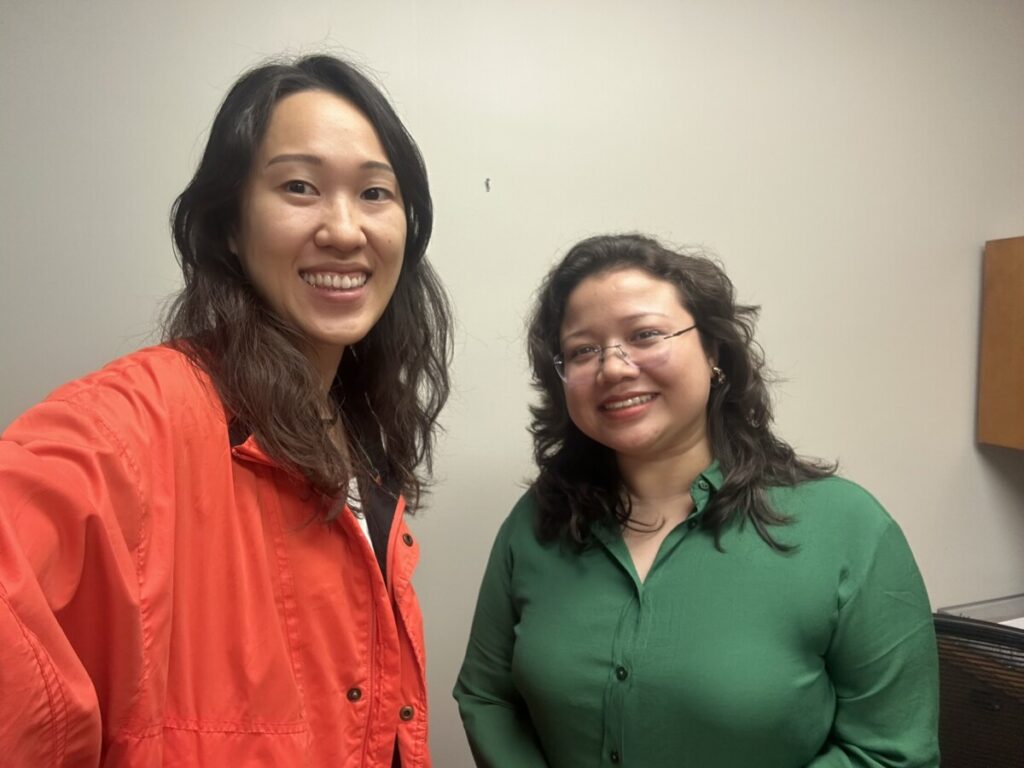This post is from Yuan-Yu Wu, who participated in an exchange program with Pure Earth as part of the National Committee on US-China Relations Professional Fellows Program. Yuan-Yu is the Director of the Taipei Office and Project Manager, Illegal Factories on Farmlands, of Citizen of the Earth, Taiwan (CET). Citizen of the Earth, Taiwan (CET) is the largest environmental NGO in Taiwan and the sole organization working to hold the government accountable to its policies on illegal factories on farmland.
Guest Blog: Yuan-Yu Wu Reflects On Her Exchange with Pure Earth Through the NCUSCR Professional Fellows Program
I am the Director of the Taipei Office and Project Manager, Illegal Factories on Farmlands, of Citizen of the Earth, Taiwan, a grassroots advocacy environmental organization in Taiwan. During my time at Pure Earth, I embarked on a fascinating journey. This was my first in-depth encounter with such a large-scale international non-governmental organization. CET focuses on grassroots advocacy and environmental issues through individual donations, while Pure Earth is dedicated to corporate and government project sponsorship, providing solutions to pollution. This represents a significantly different type of environmental organization for me, and being at Pure Earth has broadened my understanding of the spectrum of environmental groups.



There are three key highlights that left a strong impression on me during this visit:
Clear Mission and Strategy: Pure Earth’s mission is concrete, and all strategies stem from it. As I delved into their website and interacted with colleagues, I noticed a strong connection between the mission’s structure and their actions. It felt akin to reading an academic paper. In contrast, our organization typically begins with grassroots environmental movements and addresses various issues based on environmental injustice wherever they arise. Our approach is driven by the interests and professions of our advocates, so our issues cover a wide range. This visit has prompted discussions within our organization on how to articulate our mission more precisely, as it forms the foundation for organizational development.
Robust Resource Linkages: The work of CET largely involves supervising governments, advocating for improvements, and exerting pressure on policies. This approach has made our collaborations with governments and policy development work highly flexible, focusing on maintaining both pressure and cooperation with governments. So before this visit, I was only familiar with the interaction with government. When I came to Pure Earth, observing Pure Earth’s international scope and resource linkages was truly impressive. Witnessing their efforts in tackling pollution issues in industries like battery manufacturing, accumulating evidence, collaborating with universities and industries to develop safe and clean battery recycling methods, and guiding local recyclers’ transition highlighted the admirable connections and collaborations with academia, governments, and corporations. These efforts aim at systemic changes behind environmental issues, showcasing ambitious yet challenging endeavors.
Imagining Cross-Office Division Strategies for International Collaboration and Strategy: Pure Earth operates offices in eight different countries, each with its own discussions, goal-setting mechanisms, and strategies for leveraging international pressure to improve the environment. This scale of thinking was entirely new to me. In Taiwan, our organization operates three offices, each with its own roles and division of labor, for example, the Kaohsiung office serves as the administrative center, while the Taipei office focuses on parliamentary lobbying. However, in my experience at Pure Earth, seeing the cooperation among offices from different countries, besides assessing the collaborative evaluation of internal political situations in each country, it is also necessary to consider the consistency of advocacy methods among different countries, and the management of cross-national work scales, which left a deep impression on me.
Seeing Pure Earth is akin to glimpsing CET ten years from now. During my visit, I realized that mission clarity and issue refinement are essential. Many of the challenges Pure Earth faces today resemble those we encountered at CET a decade ago, such as how to narrow down the range of the issues we deal with. These observations reflect ongoing transformations within CET in recent years. It almost feels like I’ve caught a glimpse of CET’s future. While there’s much more to explore, this brief one-month visit has deeply inspired me, enriching my experiences to share with my organization.
I extend my sincere gratitude to every colleague at Pure Earth, as well as to the Professional Fellows Program, National Committee on US-China Relations (NCUSCR), and the US Department of State. Despite my brief five-week stay in the United States, it has significantly expanded my international perspective. The valuable experiences gained have sparked profound reflections and inspirations in my discussions and sharing sessions back home in Taiwan. I am truly grateful for this enriching journey.
—–
About the National Committee on US-China Relations (NCUSCR) Professional Fellows Program (PFP)
The PFP is a two-way exchange for emerging leaders in China, Hong Kong, Mongolia, Taiwan, and the United States in the fields of environment, philanthropy, legal aid, and community building among marginalized populations. The program is a unique exchange that offers NGO professionals the opportunity to gain a hands-on understanding of the American nonprofit sector. The program, funded by a grant from the U.S. Department of State’s Bureau of Educational and Cultural Affairs, is a capacity-building project for professionals in the non-governmental sector.
About Citizens of the Earth, Taiwan (CET)
Citizen of the Earth, Taiwan (CET) is a not-for-profit environmental justice advocacy organization, combining the resources of two accomplished environmental organizations, Mercy on the Earth, Taiwan and Taiwan Environmental Action Network.* In 2010, with the financial support of 174 donors, CET became Taiwan’s first foundation dedicated to environmental justice.
CET’s staff has a solid reputation for thorough and incisive investigation and research in order to offer practical and environmentally sustainable solutions. Pressure on publicly elected officials, lobbying, as well as a broader based citizen education and promotion are the means by which CET will help Taiwan realize its responsibility as a citizen of the earth.



